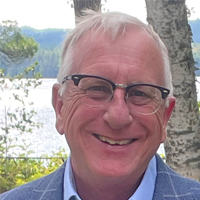 Director - Southeast ADA Center (SEADA) and Outreach, M.S.
Director - Southeast ADA Center (SEADA) and Outreach, M.S.
bawhaley@syr.eduCurriculum Vita (PDF)
Barry Whaley is the Director of the Southeast ADA Center, a project of the Burton Blatt Institute, Syracuse University. Funded by the National Institute on Disability, Independent Living and Rehabilitation Research, the Southeast ADA Center is one of ten regional centers that provide guidance, publications, research, and training on the Americans with Disabilities Act. Previously, he was project director of the Supported Higher Education Project at the University of Kentucky Human Development Institute. This project, one of twenty-six original Transitional Programs for Students with Intellectual Disabilities, explored the supports necessary for students with significant impact of disability to be successful in the post-secondary college environment. At UK he also provided ADA Title I Employment Consulting for employers, employees, and families and also provided analysis of Year One Year Out student data for the Kentucky Post-School Outcome Center. Previously, he was a Consultant for Atlas Research providing technical assistance and training for the Homeless Veterans Supported Employment Project. For many years, he was the Executive Director of Community Employment, Inc. a non-profit supported employment provider that focused exclusively on providing integrated competitive and customized employment and self-employment opportunities for people with significant disabilities. He has worked for the Kentucky Office of Vocational Rehabilitation and began his career with the “New Neighbors” deinstitutionalization project. He is a founding board member and past president of Kentucky APSE.
Barry holds two Bachelor of Arts Degrees from Indiana University and a Master of Science in Mediation, Arbitration and Dispute Resolution from Sullivan University.
Publications
2025
Lawson, S., Avila-Acosta, M., Hyseni, F., Whaley, B., Williamson, P., & Blanck, P. (2025) Lingering Inequalities in the Information Age: An Examination of Disparities in Internet Access Among People with Disabilities. Burton Blatt Institute Research Brief #3 – August 2025.
Avila-Acosta, M., Hyseni,F., Pagano, G., Lawson, S., Whaley, B., Williamson, P., & Blanck, P. (2025). Exploring Disparities in Poverty Rates Among People with Disabilities. Burton Blatt Institute Research Brief #2 – February 2025.
Hyseni,F., Avila-Acosta, M., Goodman, N., Pagano, G., Lawson, S., Whaley, B., Williamson, P., & Blanck, P. (2025). Dismantling Barriers: How Intersectionality Between Race, Disability, and Other Characteristics Affect Employment Outcomes. Burton Blatt Institute Research Brief #1 – January 2025.
2024
Whaley, B., Martinis, J., Pagano, G., Barthol, S., Senzer, J., Williamson, P., Blanck, P., (2024) The Americans with Disabilities Act and Equal Access to Public Spaces, Laws 13: 5. available at www.mdpi.com/2075-471X/13/1/5
2023
Walia, B., McDonald, K., Hammel, J., Frieden, L., Morris, M., Whaley, B., Nguyen, V., (2023) Economic Equity and People with Disabilities: Development and Characterization of a Novel Index, American Journal of Economics and Sociology, available at bbi.syr.edu/wp-content/uploads/application/pdf/bio/whaley-2023-economic-equity.pdf
Whaley, B., Williamson, P., (2023) The ADA, Addiction, and Recovery, Journal of Vocational Rehabilitation, vol. 58, no. 3, 299-305. available at: bbi.syr.edu/wp-content/uploads/application/pdf/2023-whaley-ada-addiction.pdf
2022
Whaley, B., Williamson, P., Goodman, N. (2022) Financial Inclusion and Pathways to Employment for People with Disabilities, American Banker Magazine (in preparation).
Whaley, B., Williamson, P., Goodman, N., Altunkol-Wise, F., Morris, M. (2022) Inclusion for all: improving banking practices for customers with disabilities. available at: adasoutheast.org/wp-content/uploads/2022/03/inclusion-for-all-banking.pdf
2021
Blanck, P., Baker, A., Barrett, C., Battisto, J., Gellerstein, J., Irogue, E., Martinis, J., Nanni, A., Rees, M., Torres, C., Whaley, B., Williamson, P., Felakos, J. (2021) Inclusive Public Space: Law, Universality and Difference in the Accessibility of Streets.
2020
Williamson, P. R., Morder, M. J., & Whaley, B. A. (2020) The ADA and Face Mask Policies [Fact sheet].
2019
Morris, M., Williamson, P., Whaley, B., Cummins, R., Adya, M., & SE ADA PAR Team. (2019). Draft Quality Indicators Financial Inclusion Tool (QI-FIT). On file with author.
2018
Sheppard-Jones, K., Kleinert, H., Butler, L., Whaley, B., Volume 56 Number 1, (2018) 69-74. Life Outcomes for Young Adults with Intellectual Disability in Higher Education. Intellectual and Developmental Disabilities.
2017
Whaley, B.A., Walters, C., (2017) Service Animals in the Workplace, America’s Job Exchange Employer’s Blog.
Whaley, B.A., (2017) When Things Aren’t As They Seem (Non-Obvious Disability and Employment, America’s Job Exchange Employer’s Blog, Boston, MA.
2016
Grigal, M., Whaley, B. (2016). What is inclusive higher education for people with intellectual disabilities, and how does it connect to vocational rehabilitation? A primer for VR leaders and practitioners. VR and Youth Rehabilitation Research and Training Center Practice Brief, Issue No. 01. Rockville, MD: TransCen, Inc.
Butler, L., Sheppard-Jones, K., Whaley, B., Harrison, E. & Osness, M. volume 44 (2016) 295-298. Does Participation in higher education make a difference in quality of life for students with Intellectual disability? Journal of Vocational Rehabilitation.
Whaley, B. (2016) Should I Disclose my Disability During a Job Search? America’s Job Exchange Employer’s Blog blog.
Whaley, B. A., Cummins, R., Williamson, P., Killeen, M., Adya, M., Morder, M., & Morris, M. W. (2016). Pathways to careers: An Americans with Disabilities Act (ADA) roadmap. ADA and Self-Advocacy for Youth – Train-the-Trainer Curriculum: An Americans with Disabilities Act (ADA) Roadmap.
2014
Whaley, B., (2014) The Disability Landscape is Changing: Making Higher Education More Inclusive, Job Training and Placement Report volume 38, issue 12, Impact Publications Waupaca, WI.
Whaley, B., (2014) Employment Strategies for Returning Veterans Job Training and Placement Report, Oshkosh, WI Impact Publications.
2013
Whaley, B. (2013) Job Development Strategies for Ex-Offenders, Job Training and Placement Report, Oshkosh, WI, Impact Publications.
2012
Whaley, B., (2012). Know Your Employment Rights under the ADA, A Guide for Veterans, Louisville, KY. National Institute on Disability Rehabilitation and Research (NIDRR).
2001
Whaley, B. (2001). Chapter 15, Transition to Employment. Transition Planning for Secondary Students with Disabilities. Upper Saddle River, NJ. Merrill-Prentice Hall.